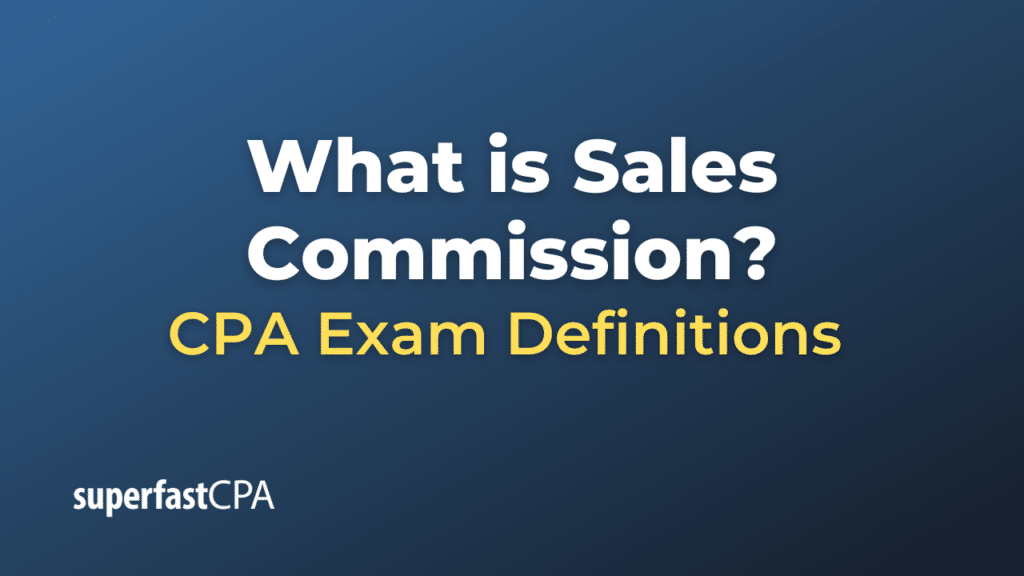Sales Commission
Sales commission is a form of compensation paid to salespeople, usually as a percentage of the sales they generate. It’s designed to incentivize and reward sales personnel for their efforts and success in generating revenue for a company. A sales commission structure can vary from one organization to another, and it can be combined with a base salary or be the sole form of compensation, especially in jobs where employees are primarily responsible for generating sales.
There are several types of sales commission structures:
- Straight Commission: In this structure, salespeople receive commission as their sole form of compensation. They earn a certain percentage of the sales they make, and there’s no base salary.
- Base Salary Plus Commission: Salespeople receive a guaranteed base salary regardless of sales, plus a commission on the sales they generate. This is a common structure, blending the stability of a regular salary with the incentive of commission.
- Tiered Commission: As salespeople achieve higher levels of sales or surpass certain thresholds, the percentage of their commission can increase. This structure rewards top performers with a higher commission rate.
- Residual Commission: Salespeople continue to receive commission for sales or accounts they’ve secured in the past, as long as the customer continues to purchase or subscribe. This is common in industries with recurring billing, like software-as-a-service (SaaS).
- Team Commission: A team of salespeople works together to achieve sales targets and then splits the commission amongst themselves. This can promote collaboration but may not always reward individual effort.
Example of Sales Commission
Let’s create a fictional example involving a real estate agent named Alex who earns his income through sales commission.
Alex is a real estate agent, and he works primarily on commission. For each home he sells, he earns a 3% commission on the sale price of the house. This means the more expensive the house, or the more houses he sells, the more he earns.
Month of April:
- House 1: Alex sells a cozy suburban home listed at $300,000.
- Commission: 3% x $300,000 = $9,000
- House 2: He then sells a downtown condo listed at $500,000.
- Commission: 3% x $500,000 = $15,000
- House 3: Alex closes a deal on a large family home listed at $600,000.
- Commission: 3% x $600,000 = $18,000
Total Commission for April: $9,000 (House 1) + $15,000 (House 2) + $18,000 (House 3) = $42,000
Observations:
- Alex had a highly successful month, earning a commission of $42,000 from just three property sales.
- His income for the month directly reflects the value of the properties he sold. Selling higher-priced properties results in a higher commission.
- If Alex doesn’t make any sales in a month, he won’t earn any commission, highlighting the potential volatility and risk of a commission-based income.
- It’s also important to note that in real estate, other fees, such as brokerage cuts or marketing expenses, might reduce the net commission an agent takes home.
This example demonstrates the dynamics of a commission-based income. Such a structure can be highly lucrative when sales are good, but it can also be unstable, as it’s closely tied to an individual’s performance and market conditions.












